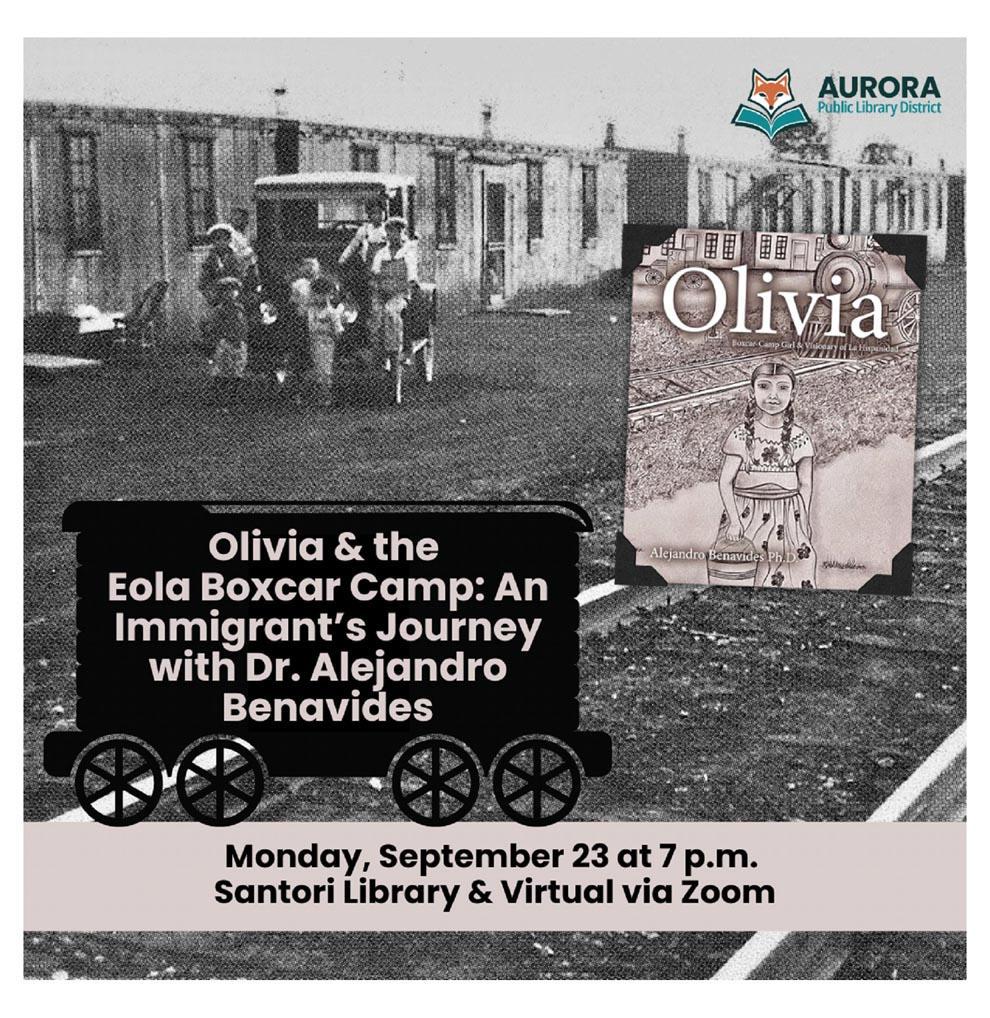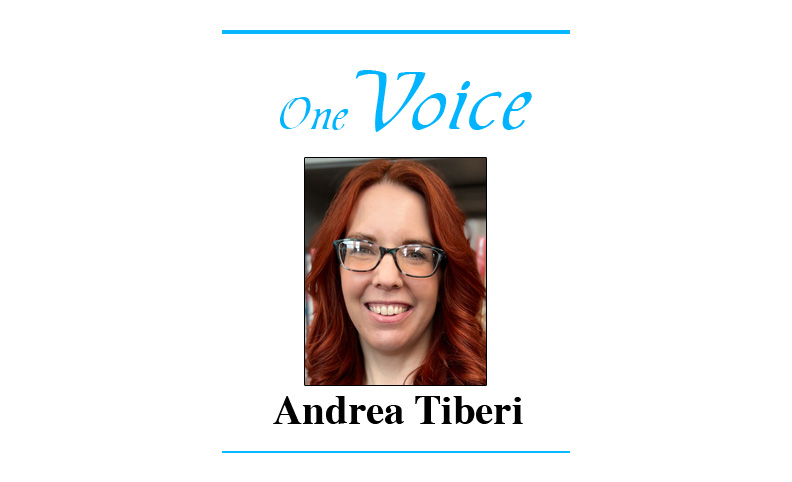

In honor of Hispanic Heritage Month, the Aurora Public Library District (APLD) is offering a unique opportunity to dive into the rich history of Aurora. Monday, Sept. 23, the Library will welcome historian and author Dr. Alejandro Benavides, to speak about his research in the program titled Olivia & the Eola Boxcar Camp: An Immigrant’s Journey. Learn how our community has evolved over time, particularly through the contributions of Hispanic immigrants who played a pivotal role in shaping Aurora’s working-class neighborhoods on the east side and why sharing these stories is as important as ever.
In the 1920s, Aurora received its first wave of Mexican immigrants fleeing the Mexican Revolution. Looking for work to support their families, many found employment with the Chicago, Burlington, & Quincy Railroad and were stationed at the West Eola Reclamation Plant. In need of housing, the railroad agreed to provide 20 decommissioned boxcars for the workers and their families. The Eola Boxcar Camp, referred to simply as ‘El Camp’ to residents, became a thriving, tight-knit community until it dismantled in 1934 due to the Great Depression. This camp is a significant part of Aurora’s immigrant history and Dr. Benavides has studied its origins and legacy extensively.
Dr. Benavides was born in southern Texas and came to live on the east side of Aurora with his family in 1950, near the location of the Eola Boxcar Camp. After serving in the Air Force, he dedicated his life to higher education, eventually earning his Ph.D. in Education Leadership. After taking an intense interest in the Eola Boxcar Camp and interviewing those who remember it, Dr. Benavides published a work of historical fiction titled, Olivia: Boxcar-Camp Girl & Visionary of La Hispanidad. This book is a community narrative on the Mexican immigrants and Tejano migrants that made Aurora their home in the twentieth century. “Dr. Benavides is deeply passionate about the story of this community, and it is fascinating to hear him speak about it,” says Genealogy and Community History Librarian Cailín Cullen. “I hope that attendees will bring their own stories as well, and I look forward to what we’ll learn in conversation with one another.” The program is not just a one-way conversation but a chance for attendees to share their own stories and contribute to the ongoing dialogue about Aurora’s history.
Programs that encourage our community to learn and share their experiences, cultivate a sense of belonging and are essential in amplifying historically underrepresented stories, like this one. “We know about the silences that exist in our historical institutions, and APLD is actively working to make historically diminished, marginalized and/or underrepresented stories visible,” added Cullen. “Library programming is a key piece of the puzzle as we collectively try to understand and make sense of Aurora’s storied past.” For those inspired to explore more of Aurora’s history, the Community History Center, on the second floor of the Santori Library, is an invaluable resource. Visitors will find city directories, yearbooks, Beacon News archives dating back to 1848, and a vast collection of local history materials. The library’s genealogy section also offers resources for those seeking to learn more about the city’s past and their ancestors.
Dr. Benavides’ work is a tribute to the legacy of the Eola Boxcar Camp and the hard-working individuals who shaped the city’s industrial past. During the program, attendees will have a chance to win prizes, including a signed copy of the book, and exclusive posters donated by the author. Olivia & the Eola Boxcar Camp: An Immigrant’s Journey will take place Monday, Sept. 23 from 7 p.m. to 8 p.m. at the Santori Library in rooms 125 & 126. For those unable to attend in person, you may view the program virtually on Zoom. For more information, please visit www.aurorapubliclibrary.org/event/11042964 or contact the library at 630-264-4117. Don’t miss this opportunity to honor Hispanic Heritage Month, connect with the past, and explore the diverse narratives that make Aurora what it is today.
Andrea Tiberi is the communications coordinator for the Aurora Public Library District.

